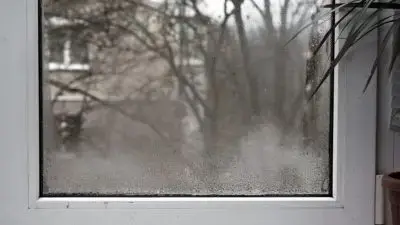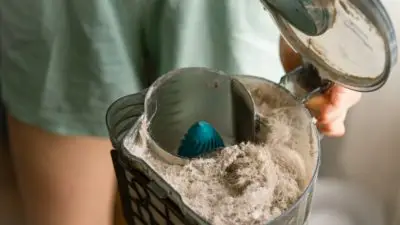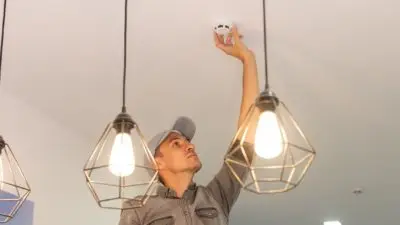There are a lot of pieces to consider when making your home more energy efficient – and your windows are a big part of that puzzle. Your home’s envelope is what protects you from the outdoor environment, and that includes your windows. If you have old windows that are underperforming, you are likely wasting money year-round through energy loss.
“Heat gain and heat loss through windows are responsible for 25%-30% of residential heating and cooling energy use,” says the U.S. Department of Energy (DOE).
If your windows are not up to date, you can experience heat gain and loss easily, which affects your comfort level at home and your annual energy costs.
Improve the efficiency of your existing windows
Depending on the severity of the deterioration of your windows, replacement isn’t the only option to improve the efficiency of your windows. Here are some ways to make your existing windows more energy efficient.
- Check for air leaks around your windows and update your air sealing if needed (caulk and weatherstrip)
- Add window coverings such as interior curtains or exterior awnings or shutters
- Install low-e storm windows to reduce air movement through your windows
Replace your windows
Sometimes window replacement is what makes the most sense for your home. Window materials that are traditionally found in homes, such as single-pane glass and double-pane clear glass, are ineffective at protecting you from the heat and cold. “If you have these windows in your home, you are likely spending hundreds of dollars a year more in home heating and cooling costs than you would with the latest ENERGY STAR qualified windows,” says the U.S. DOE.
According to energystar.gov, “installing ENERGY STAR-certified windows, doors, and skylights can shrink energy bills by an average of 12% nationwide, compared to non-certified products.”
Save an average of $366 a year on heating and cooling costs by replacing single-pane windows and approximately $134 per year by replacing double-pane, clear glass windows.
If you are ready to replace your windows to save energy and money year-round, consider these tips.
- Look for the ENERGY STAR label
- Review the energy performance label from the National Fenestration Rating Council (NFRC), included on all ENERGY STAR-certified windows
- Learn how to read and understand the labels here
- Upgrade the insulation on your home first to get the most out of your new windows (Get insulation at 75%+ off here with an assessment)
- Have your window properly installed by a professional, according to the manufacturer instructions, to maintain warranty eligibility
- Choose a whole-unit low U-factor
- A U-factor is how well the window insulates – the lower the U-factor, the better
- Pick a window with a low solar heat gain coefficient (SHGC)
- An SHGC represents how much of the sun’s heat comes through your window – the lower the SHGC, the less heat the window allows in
- Consider your climate zone, as different climates will have unique needs (Check out a map here)
- Learn more about window types and technologies here
Consider passive solar design
If you’re constructing or buying a new home, pay attention to the location of the windows, as passive solar design is something that could help lower your energy costs all year. The windows should face within 30 degrees of true south and should not be shaded during the heating season from 9 a.m. to 3 p.m. During the cooling seasons, the windows should be shaded.
Make your whole home more energy efficient
To learn more about the energy efficiency of your windows, call our partner, Coastal Windows & Exteriors, at 978-924-4228. Ask about current window specials and the replacement process, and don’t forget to mention HomeWorks Energy! Their winter-ready sale includes up to 20% off or 0% interest – $0 down and 0 payments for 24 months!
Want to make your home more energy efficient through insulation/air sealing upgrades or HVAC system repair/replacement? Call HomeWorks Energy at (781) 305-3319 to get a no-cost Home Energy Assessment and access incentives like 75%+ off insulation, 100% off air sealing, up to $2,750 in HVAC system rebates, 0% financing options for upgrades, and no-cost items like programmable thermostats and advanced power strips. Sign up online here.
Don’t overlook the energy efficiency of your home – by making upgrades you can reduce home energy use, save money, and make the world (and your community) a greener place to live. Together, we can make a difference!








